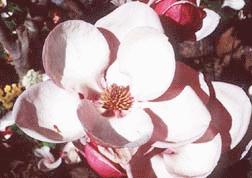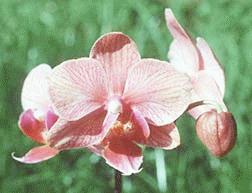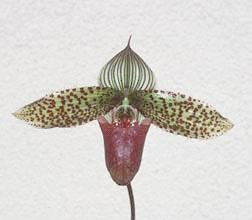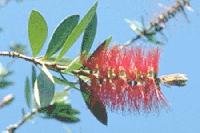FLORAL MORPHOLOGIES
The Magnolia is considered a plant with one of the most primitive types of flowers. It has an indefinite number of floral parts per whorl. The modified leaves are arranged spirally.
Orchids are considered much more specialized. The flower parts are generally in threes. Is an orchid a MONOCOT or a EUDICOT? You can see that the lower petal has been modified into a landing platform. The stamen are highly specialized. All of the pollen of a flower is found in a sac called a pollinium. Orchids have very specific pollinators….they have to because the vector will take the entire pollinium from one flower with him/her. For this relationship to be successful the pollinator must drop off the pollinium to another orchid of the same type.
This is the flower of the orchid Paphiopedalum. The sepals and petals do not appear in threes. The sepals are actually fused. Another feature considered specialized which occurs in orchids is zygomorphy, that is the flowers are bilaterally symmetrical. In lab you looked at Mimulus and snapdragon which are zygomorphic.
Helianthus (sunflower) is a member of one of the two largest families of flowering plants, the Asteraceae, commonly called the ‘composites’. What appears to be a single conspicuous flower is really a dense cluster or ‘head’ of small and inconspicuous flowers of two types. The central disk flowers are tubular and epigynous with 5 stamens and an ovary with a single ovule. The ray flowers on the outer edge of the head are carpellate with one strap-shaped petal. (See Raven 7th, p. 459, Fig. 20-9; 8th, p. 485, Fig. 20-10).
Here is a section through the head of a sunflower. You can see the small disk flowers. In the background you can see the yellow petal of the ray flowers.
You can see here that the ovary resembles the sunflower seed you are used to eating. The sunflower seed is actually a fruit called an achene. They are roasted and salted to make them palatable.
This is Callistemon of the Myrtaceae. It is called the bottle brush flower (native to Australia) because of its showy red stamens. The petals and sepals are much reduced.






